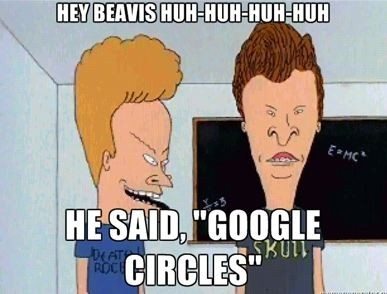
Just been talking about innovation with a bunch of folks and
found myself getting more and more wound up about the way people bandy the word
around without knowing its meaning.
It’s not that I’m some pedant or radical who believes that
every word has to be used in context correctly, but more to do with the way
people talk about innovation as the core of growth and the essence of what they
do, when they don’t even know what it is.
The conversation went something like this.
Geek 1: “Apple, what a company. I think they were the most innovative company
in the world when Jobs was alive, but now that he’s dead, I dunno. They’re kinda losing it.”
Geek 2: “Yea, but Apple was always losing it when
they bought out that dud of an iPhone5.
I’m now on to see if the Windows8 phone cuts it.”
Geek 1: “Nah, Windows8 man. What planet are you on? Don’t you know that Microsoft stands for Most
Intelligent Characters Realise Our Software Only Fools Teenagers?”
Geek 2: “Yea, and Apple are Arseholes Perpetuating
Plebby Lardware Everywhere.”
Geek 3:
“C’mon, guys. You need to get onto
Google Android. That’s the future.”
Geek 1: “When did Google last innovate anything?”
Geek 2: “Didn’t you see Google Circles?”

Geek 4: “That’s why I’m waiting for the Facebook
phone.”
Altogether: “Oooooooooooo.”
Geek 4: “Yea. They’re the innovator now.”
The conversation frightens me as these were banking geeks
talking about their mobile offers and yes, you guessed it, they all love gadgets whether it
be smartphones, wireless headphones, tablets or pills (!).
The thing is that innovation is actually nothing to do with
technology.
Technology often enables innovation, but technology is not
innovation.
We need to go back to the word and definition of innovation
itself and, in looking for a reasonably comprehensive definition, I quite liked
this one from the Business Dictionary:
Innovation is the
process of translating an idea or invention into a product or service that
creates value and / or for which customers will pay.
To be called an
innovation, an idea must be replicable at an economical cost and must satisfy a
specific need.
Innovations are
divided into two broad categories:
- Evolutionary innovations (continuous or dynamic evolutionary
innovation) that are brought about by many incremental advances in technology
or processes and - Revolutionary innovations (also called discontinuous innovations)
which are often disruptive and new.
Innovation is synonymous
with risk-taking and organisations that create revolutionary products or
technologies take on the greatest risk because they create new markets. Imitators take less risk because they will
start with an innovator’s product and take a more effective approach.”
There is no mention here of technology, apart from the fact
that this may enable new markets to be created.
In fact, my definition of innovation would summarise this as
“the process of implementing new business models that deliver supply chains or
value chains which create new markets and / or disrupt existing ones”.
Semantics and pedantics aside, it is the fact that so many discussions
of innovation come down to a tech discussion that annoys me the most.
For example, Apple is not an innovator of technology.
There were plenty of digital music players, websites for downloading
music and mobile phones around before the iPod, iTunes and the iPhone.
What Apple has been brilliant at is executing the vision of
how to assemble these technologies into new value chains, such that the
consumer can see why they would want these technologies.
It is the form and beauty of the Apple products once
integrated and assembled that made their business rock and roll, not the
technology.
So innovation is about the execution of new business models,
not technology.
Or am I just being pedantic?
Picture courtesy of the Meme Generator
Chris M Skinner
Chris Skinner is best known as an independent commentator on the financial markets through his blog, TheFinanser.com, as author of the bestselling book Digital Bank, and Chair of the European networking forum the Financial Services Club. He has been voted one of the most influential people in banking by The Financial Brand (as well as one of the best blogs), a FinTech Titan (Next Bank), one of the Fintech Leaders you need to follow (City AM, Deluxe and Jax Finance), as well as one of the Top 40 most influential people in financial technology by the Wall Street Journal's Financial News. To learn more click here...

